Movie Review: The Ten Best Films of 2013 — Our Lists
by Arts Fuse Staff
Ten Best Films of 2013, in order:
1. The Wolf of Wall Street-Martin Scorsese’s claim to the title of America’s best living filmmaker makes sense again, a flashy return here to the anarchic vitality of Goodfellas. Wolf is the best directed, best acted film of the year, with virtuoso turns by Jonah Hill and Leonardo DiCaprio. As Jordan Belfort, the Long Island-based capitalist and crook, DiCaprio is more convincingly Jay Gatsby than in The Great Gatsby. Fuse review
2. To the Wonder-Forsaken by fans of Tree of Life, To the Wonder is an even more beautiful, profound, stripped-down poem of a film by Terrence Malick. It’s his most consciously Bressonian work, from the expressionless acting to the subplot about a spiritually struggling cleric, an homage to Robert Bresson’s classic, Diary of a Country Priest. 2013’s most underrated film. Fuse review
3. This is the End-A stupendously funny apocalyptic satire about the demise of the world as experienced by a gaggle of LA-based self-absorbed actors and comedians, including Seth Rogen, Jonah Hill, and James Franco. The jokes and banter are better than Judd Apatow. If you like Abbott and Costello Meet Frankenstein—who doesn’t?—get ready to laugh and laugh. Fuse review
4. Sun Don’t Shine-It barely played theatrically, so check out on DVD this dizzyingly chilling Florida “noir,” a first film written and directed by Amy Seimetz. There’s a young couple on the lam, and something worrisome in their car trunk. The guy and gal, who feel like escapees from a Flannery O’Connor story, are played expertly by Kentucker Audley and Kate Lyn Sheil.
5. No-Last year’s Academy Award nominee from Chile just got here in 2013, and it’s the most gratifying political drama of the year, the story of how capitalist PR strategies were adopted by the left to defeat Augusto Pinochet in a 1988 referendum. The star, imported from Mexico, is the eminently watchable Gael Garcia Bernal. Hooray! A too-rare, real-life victory for the good guys!
6. Blackfish-Not an interesting work formally, Blackfish delivers as a passionate muckraking documentary. Who watching this film cannot come to the conclusion that there is no place for killer whales as SeaWorld performers? It’s awful for the imprisoned whales, worse for the human divers, mauled or even killed on the job, when the trapped whales inevitably lose it.
7. The Act of Killing-Filmmaker Joshua Oppenheimer stretches the documentary form by having the real-life mass murderers of countless Indonesians reenact some of those killings for the camera, in the guise of tacky, bloody action movies. The film is undeniably shocking. Months after seeing it, I’m still not sure how I feel about Oppenheimer’s creepy strategies. Fuse review
8. Fill the Void-Rama Burshtein, a Hasidic woman, is the unexpected director of this tender, finely made Israeli feature about courtship and love within Israel’s closed Haredi community. Hadas Yaron is radiant as the bride-to-be, winner of the Best Actress Award at Venice. But detractors of the movie make the claim that the gentle picture we get of Ultra-Orthodox life is a sham, that the lovely marriage we endorse is a pathway to women’s slavery.
9. Afternoon Delight-“Bored housewife befriends a stripper” is the unpromising gimmicky premise. What a nice surprise when this first film from writer-director Jill Soloway turns out to be an intelligent, appealing movie. The adopt-a-stripper plot line actually makes sense, what the desperately confused heroine of the movie (the wonderful Kathryn Hahn) just might do, in an attempt to shake up, and subconsciously muck up, her listless, quietly desperate life. Fuse review
10. Paradise: Love-The spirit and baroque style of Fassbinder live on in this sad, brutal tale of sexual power relations from Austria’s Ulrich Seidl. A dumpy, unglamorous 50-year-old Austrian woman (the brave Margarethe Tiesel) travels to Kenya to have sex with young black men. What happens is a dance of death of the exploited turned exploiters, then back again, with everyone ultimately miserable. Kudos to the cinematography of America’s Ed Lachman.
The most unfairly maligned film of the year: Ridley Scott’s The Counselor. The most overrated movie of the year, which gave me a mammoth headache: American Hustle.
— Gerald Peary
Gerald Peary is a professor at Suffolk University, Boston, curator of the Boston University Cinematheque, and the general editor of the “Conversations with Filmmakers” series from the University Press of Mississippi. A critic for the late Boston Phoenix, he is the author of 9 books on cinema, writer-director of the documentary For the Love of Movies: the Story of American Film Criticism, and a featured actor in the 2013 independent narrative Computer Chess.
1.Her – Any film that includes the disembodied mind of Alan Watts deserves top billing. Spike Jonze engages in a visually stunning, superbly acted, disturbing and profound exploration of the frightening future of love and identity in a digital universe.
2. Inside Llewyn Davis – A naysayer asked me why I liked this film so much and, at a loss, I blurted out, “I am Llewyn Davis.” A long, embarrassing silence followed and I added, “And I liked the cat.”
3. Wadjda – Not only is this the first film made by a woman in Saudi Arabia (or by anyone in that country apparently), but it also rivals the early masterpieces of Abbas Kiarostami in its charming, tragic, achingly authentic depiction of what it means to be a smart kid growing up among dumb adults. Subtly, beautifully shot, with a terrific performance by Waad Mohammed in the title role.
4. Upstream Color – Still have no idea what Shane Carruth’s ecstatic narrative and visual assault means. Still am staying up nights trying to figure it out. Puts the trance back in transcendental.
5. Fill the Void – First-time director Rama Burshtein’s radiant recreation of a subculture – the orthodox Haredi Jewish community of Tel Aviv – and the exquisite performances elevate this tale of loss, loyalty, and independence into a universal tragedy.
6. In the House – I like self-reflexive movies that are about movies, and about narrative in general. And I like puzzles and clever dialogue delivered with sparkling grace by attractive actors. François Ozon accomplishes all this and more with wicked wit and panache.
7. Caesar Must Die – A deceptively simple and deeply moving recreation of a performance of Shakespeare’s Julius Caesar put on by inmates of a maximum security prison in Rome. The Taviani Brothers interweave the drama of the production, the interactions of the performers with their troubled histories, and the play itself into a deeply moving, illuminating fugue.
8. Our Children – Ignored by everyone, Émilie Dequenne put in one of the best performances of the year as a mother pressured slowly, insidiously, and inexorably into a shocking act of rebellion.
9. Computer Chess – Along with Her and The Secret Life of Walter Mitty (which didn’t make the cut), Andrew Bujalski’s sui generis absurdist comedy presents the humble origins of our current digital gotterdammerung. It also stars my choice for the year’s Best Supporting Actor, Gerald Peary. (Who is an Arts Fuse Film Critic)
10. All Is Lost – Just got to love a film where the sole line of dialogue is “fuck!” An allegory about individual and environmental decline that is as upbeat as the title suggests. I’m still scratching my head wondering why no one is noticing that this is Robert Redford’s best performance ever.
Whoops, inexplicably overlooked: Leviathan, The Act of Killing, Berberian Sound Studio. And others that will undoubtedly occur to me long after this year is gone and forgotten.
Five worst.
There were far, far worse movies released this year – Grown Ups 2, A Madea Christmas, etc. But I’m thinking of movies that had pretensions of artistry, or a potential for greatness, or phony films that have inexplicably been revered by just about everybody but me. What’s wrong with me? Help me.
So with all due respect:
1. 12 Years a Slave
2. Blue is the Warmest Color
3. The Great Beauty
4. Before Midnight
5. Frances Ha
— Peter Keough
Peter Keough, currently a contributor to The Boston Globe, had been the film editor of The Boston Phoenix from 1989 until its demise in March. He edited Kathryn Bigelow Interviews (University Press of Mississippi, 2013) and is now editing a book on children and movies for Candlewick Press.
In no particular order:
42 – A biopic that worked, with Chadwick Boseman providing an understated but powerful performance as Jackie Robinson. It offered an unsanitized look at what Robinson had to endure in order to break baseball’s color line.
Blue Jasmine – Easily Woody Allen’s best film in many a year with an Oscar-worthy performance by Cate Blanchett as the Blanche Dubois-like society lady on the skids. Sally Hawkins and Andrew Dice Clay were also terrific.
The Butler – Lee Daniels’ portrait of a White House butler who served eight presidents. Forest Whitaker is excellent even if the film tries to convey the entire Civil Rights movement in a far too limited time-span.
Enough Said – Sweet and funny, made more poignant because it was James Gandolfini’s last film. He and Julia Louis-Dreyfus find a special chemistry that carries an otherwise uninspired script. Nicole Holofcener (Please Give) has a deft touch for turning the quirky into the endearing.
Gravity – The first half hour is as close to space-walking as most of us are likely to get and it is simply breathtaking. Sandra Bullock turns in a stellar performance as a mission specialist suddenly forced to find a solo path to survival. Plausibility red flags everywhere, but Alfonso Cuaron delivers a beautiful fable in an unlikely setting.
Captain Phillips – Like Gravity, this is a thriller that keeps you on the edge of your seat for much of the film. Based on a true story, Tom Hanks delivers yet another amazing performance as the captain of a tanker taken captive by Somalian pirates.
All Is Lost – Hard to imagine a film without any dialogue and just one actor struggling to survive a sinking sailboat in the Indian Ocean could work. But Robert Redford, at 75, turns in a shockingly great performance in this remarkable film directed by J.C. Chandor.
Inside Llewyn Davis – The Coen Brothers latest offering is not so much a story as a character study encased in a beautiful soundtrack. Unknown Oscar Isaac is mesmerizing as a struggling folksinger in the earliest days of that musical era. He not only acts but sings and plays an effortless guitar. The music alone is worth a look and listen.
American Hustle – Frenetic and messy, David O. Russell’s take on the Abscam sting in the 1970’s is not just funny but wonderfully acted by a powerhouse cast that includes Bradley Cooper, Jennifer Lawrence, Amy Adams and Christian Bale.
Saving Mr. Banks – Call me a sentimental old fool but I fell hook, line and sinker for John Lee Hancock’s take on the backstory about the making of Mary Poppins. Emma Thompson beautifully portrays P.L. Travers, the finicky author of the Mary Poppins books who, for 20 years, had stubbornly refused the entreaties of Walt Disney himself for the film rights. It starts slow but eventually the story is irresistible and we all know, a spoonful of sugar helps the medicine go down.
Eager to see: Nebraska, Philomena, Her, The Wolf of Wall Street, August: Osage County……
— Glenn Rifkin
Glenn Rifkin is a veteran journalist and author who has covered business for many publications including The New York Times for more than 25 years. Among his books are Radical Marketing and The Ultimate Entrepreneur. His efforts as an arts critic represent a new and exciting direction.
Top Films of 2013
by Tim Jackson
Six categories covered most of my favorite films in 2013, with one stand-alone exception. Thus I decided to mix narrative and documentary movies and list them in groups. The result is a Top 20 list, but it was a very good year.
Stand Alone
The Wolf of Wall Street – Director Martin Scorcese has created a testosterone-fueled orgy of sex, drugs and money. The violence of his best gangster films gives way here to madcap comedy, but it is no less obscene. DiCaprio is insanely brilliant. If you think it glorifies these money-men, write Washington, not the filmmaker. We are all culpable. America went off the rails with greed and hubris. There’s a powerful and subtle message in the very last shot of the film. Fuse Review
Love and Sex
1) Her – It is creepy and romantic and poses all kinds of questions about the nature of relationships in a solipsistic age. The acting and photography are superb. Actor Joaquin Pheonix never fails to maintain the perfect histrionic pitch in nearly two hours of close ups as he talks to his operating system. Fuse Review
2) Blue is the Warmest Color – The heavily erotic scenes got much of the attention, receiving both positive and negative criticism. Shot largely in close up, actresses Léa Seydoux and young Adèle Exarchopoulos (in particular) nimbly create the emotional topography of first love. The eroticism is needed to anchor the director’s portrait of passion. I was riveted. Fuse Review
3) Spring Breakers – Harmony Korine marches to his own drummer and this gonzo beach party gangsta movie came off as a brilliant stunt, a Situationist act of commercial debauchery. Exiting the theater, I heard a mother apologizing to her daughter: “I’m sorry, honey, I didn’t realize what we were seeing.” Fuse Review
Non-Fiction / Fiction Blends
1) Stories we Tell (documentary) – It’s best to know nothing about how this film was put together when you see it for the first time. Its elegant construction patiently peels away layers of family history and psychological rationalization as it plays with notions of truth and story telling.
2) Caesar Must Die – I expected something like the 2005 documentary Shakespeare Behind Bars, but here the Taviani Brothers use real-life inmates from the maximum-security wing at Rome’s Rebibbia prison to create a production of Shakespeare’s Julius Caesar that is carefully constructed to look like a documentary. Their neo neo-Italian realist approach to filming the process of staging of a play about murder and power with real gangsters playing actors playing conspiratorial roles is dizzying and magnificent.
3) The Act of Killing (documentary) ¬ Indonesian murderers and thugs who had been at the service of the dictatorship in the mid-60’s (America looked the other way) describe their atrocities, demonstrate their methods, and reenact their crimes by way of surreal, Hollywood-like scenarios. It is equally comical and disturbing, leaving the viewer to confront his or her own sense of guilt and helplessness at the madness in the world.
The ’60s
1) Inside Llweyn Davis – While it may leave out much of the politics of the era, the film conjures up the look and music of the pre-Dylan ’60s folk era. The excellent casting and spot-on performances explore the frustrations and hard scrabble life of a struggling musician. Fuse Review
2) Francis Ha – While this story may not take place in the ’60s, the film has the black and white spirit of the French New Wave tattooed all over it. Greta Gerwig finally found a wonderfully rambling and antic script for her energetic talent. Fuse Review
3) Muscle Shoals and 20 Feet From Stardom (documentary) – The former is a history of the Alabama studios that produced unique American music, from Etta James and Aretha Franklin to Lynyrd Skynyrd and many others. The latter is a celebration of great voices that preceded our age where show biz glitz, slick production, and contest winners garner our attention. These ‘back-up’ voices enabled great American music to find its soul.
4) Ginger and Rosa – Writer, musician, and feminist Sally Potter uses the anxious period of the 1962 Cuban missile crisis to background a bittersweet character study and coming-of-age story that involves two working-class British girls. The preternaturally talented Elle Fanning leads a perfect cast that includes Timothy Spall and Christina Hendrix (Mad Men) in a film that leaves you hoping and dreaming.
5) Not Fade Away – This David Chase (The Sopranos) sleeper proffers a rambling ambience that captures the hopes and conflicts of ’60s youth. Having myself been there and done that, I was amazed by the film’s attention to detail, no doubt assisted by knowledge of Steven Van Zandt. The film nails the milieu, and while there are a few clichéd plot twists, the result is honest and charming. Fuse Review
Race Relations
1) Fruitvale Station – This is an amazing debut film – directed by Ryan Coogler – that celebrates an imperfect perfect life in a way that dignifies its subject. The view of the obscenity of Oscar Grant’s murder by the police reminds us of the tragic injustice of a life wasted, including all its lost potential.
2) Let the Fire Burn (documentary) – Jason Osder uses only archival footage to chronicle the tragic overreaction of police as they removed the radical African-American Move Organization from its Philadelphia row house in 1981. The result was the destruction of 61 homes. It is narrated in part with excerpts from an interview with a survivor, Michael Moses Ward, who at the time of the upheaval was a child known as Birdie Africa. Neither side is blameless, but it is essential to keep the memory and history of the debacle are alive. Sadly, Ward died mysteriously in a cruise ship hot tub before the film was released. Fuse Review
3) The Butler – Lee Daniels tells unconventional stories with a go-for-it attitude. This film appeared to be conventional, but look at it carefully. It dares to take a kind of cartoonish approach in order to educate a wide audience about civil rights for years to come. Any film that casts Jane Fonda as Nancy Reagan is not short on irony. Fuse Review
Servitude
1) Paradise: Love – Middle-aged Austrian women exchange their money and their souls for sex with beautiful young black men. It’s a mutual hustle with all the charm of a horse trade. The movie morphs from presenting a facile illusion of romance to exploring the exploitation of one race and culture by another. This a brave and surprising film.
2) 12 Years a Slave – British director Steve McQueen’s unblinking look at American slavery is true to its source, the 19th century memoir by Solomon Northup. It is a harsh exploitation of the horrors of the subject, but one that needed to be done by a black director with a steady gaze. Fuse Review
3) Blackfish (documentary) – An expose of the exploitation and damage done to killer whales and their family herds. Tilikum, a performing killer whale, murdered several people: he had been driven psychotic while kept in captivity. The film makes the case that these are creatures of high emotional intelligence and using them to serve as public amusement is obscene and wrong.
Art Films
1) Beyond the Hills – Romanian director Cristian Mungiu’s fascinating examination of the limits and abuses of religious faith as well as superstition and law. Like his masterful 4 Months, 3 Weeks and 2 Days, the movie exudes a patience and beauty that overwhelms. Fuse Review
2) Post Tenebras Lux – Arrestingly beautiful images, careful sound design, and long patient shots in an ambitious narrative whose meaning comes upon the viewer as if he or she were waking from a dream. It should be viewed more than once — and best on a big screen. Fuse Review
Tim Jackson is an assistant professor at the New England Institute of Art in the Digital Film and Video Department. His music career in Boston began in the 1970s and includes some 20 groups, many recordings, national and international tours, and contributions to film soundtracks. He studied theater and English as an undergraduate and has also has worked helter skelter as an actor and member of SAG and AFTRA since the 1980s. He has directed two documentaries: Chaos and Order: Making American Theater about the American Repertory Theater, and Radical Jesters, which profiles the practices of 11 interventionist artists and agit-prop performance groups. He is currently finishing a third documentary, When Things Go Wrong, about the Boston singer/songwriter Robin Lane, with whom he has worked for 30 years. You can read more of his work on his blog.
Tagged: Afternoon Delight, All is Lost, American Hustle, Blackfish, Caesar Must Die, Computer Chess, Fill the Void, Her, In the House, Inside Llewyn Davis, No, Our Children, Paradise: Love, Peter Keough, Sun Don't Shine, The Act of Killing, The Counselor, The Wolf of Wall Street, This is the End, To The Wonder, Upstream Color

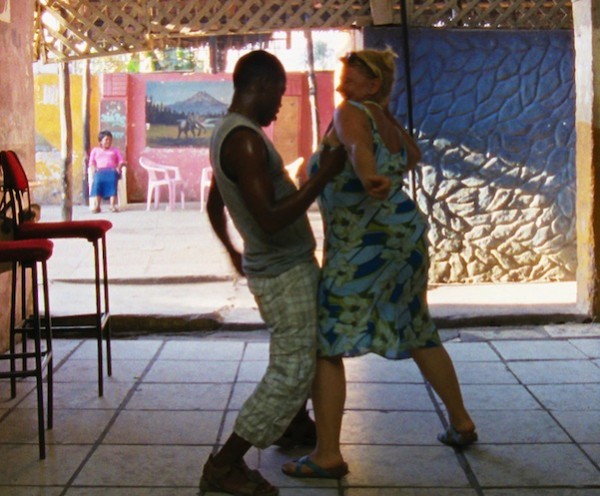
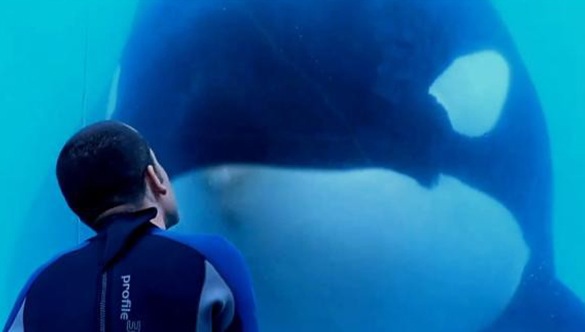

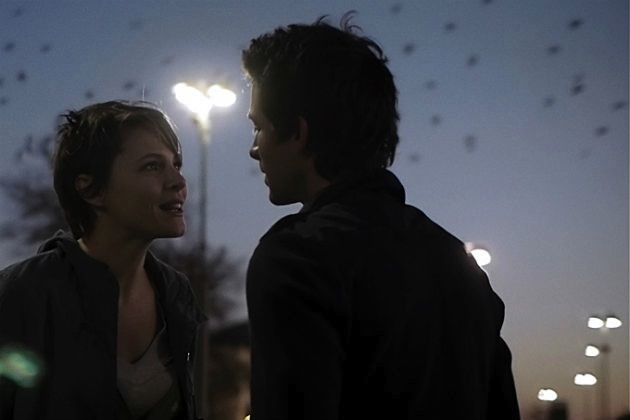

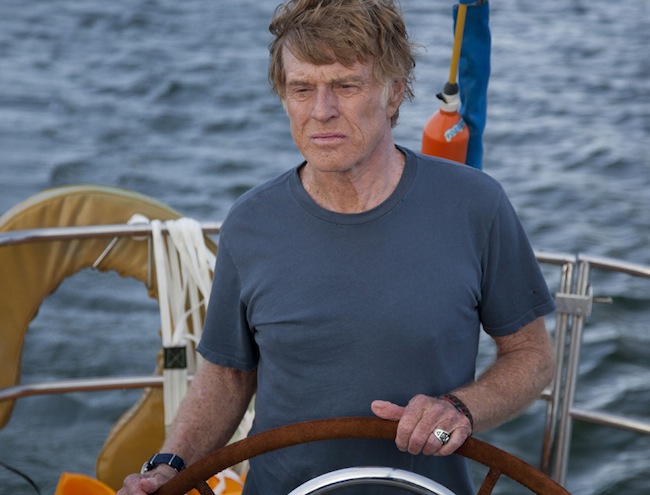

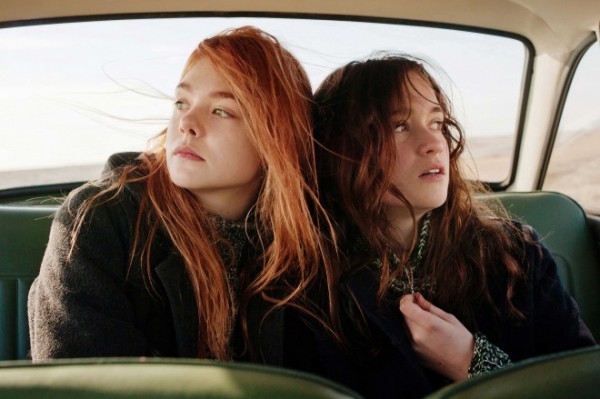
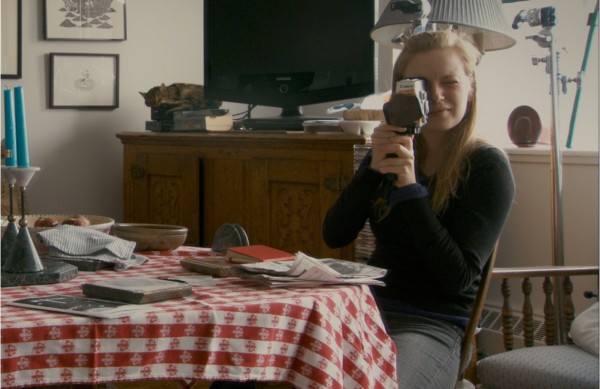
PK, then you must have loved that famous sequence in The Wire with McNulty and Bunk that consisted of utterances of the f word. Also, Llewyn, er, Peter, haven’t plenty of people said this is Redford’s best performance?
True, many have, but it hasn’t registered much in the critics tallies nor in the SAG nominations.
One of the great regrets of my life is never having seen The Wire. Some day I will have to watch the whole shebang on DVD or I’ll never be taken seriously as a critic again.
Happy New Year!
Thanks, Glenn, for standing up for The Butler and Saving Mr. Banks, two of my corny pleasures for 2013.
Thanks, Peter, for having the nerve to attack 12 Years a Slave and Frances, Ha, both vastly overrated. I didn’t hate Before Midnight, but it was a disappointing conclusion to Richard Linklater’s otherwise momentous trilogy. The Great Beauty confounds me: some days I think it’s a wonderful movie, other days totally formless..